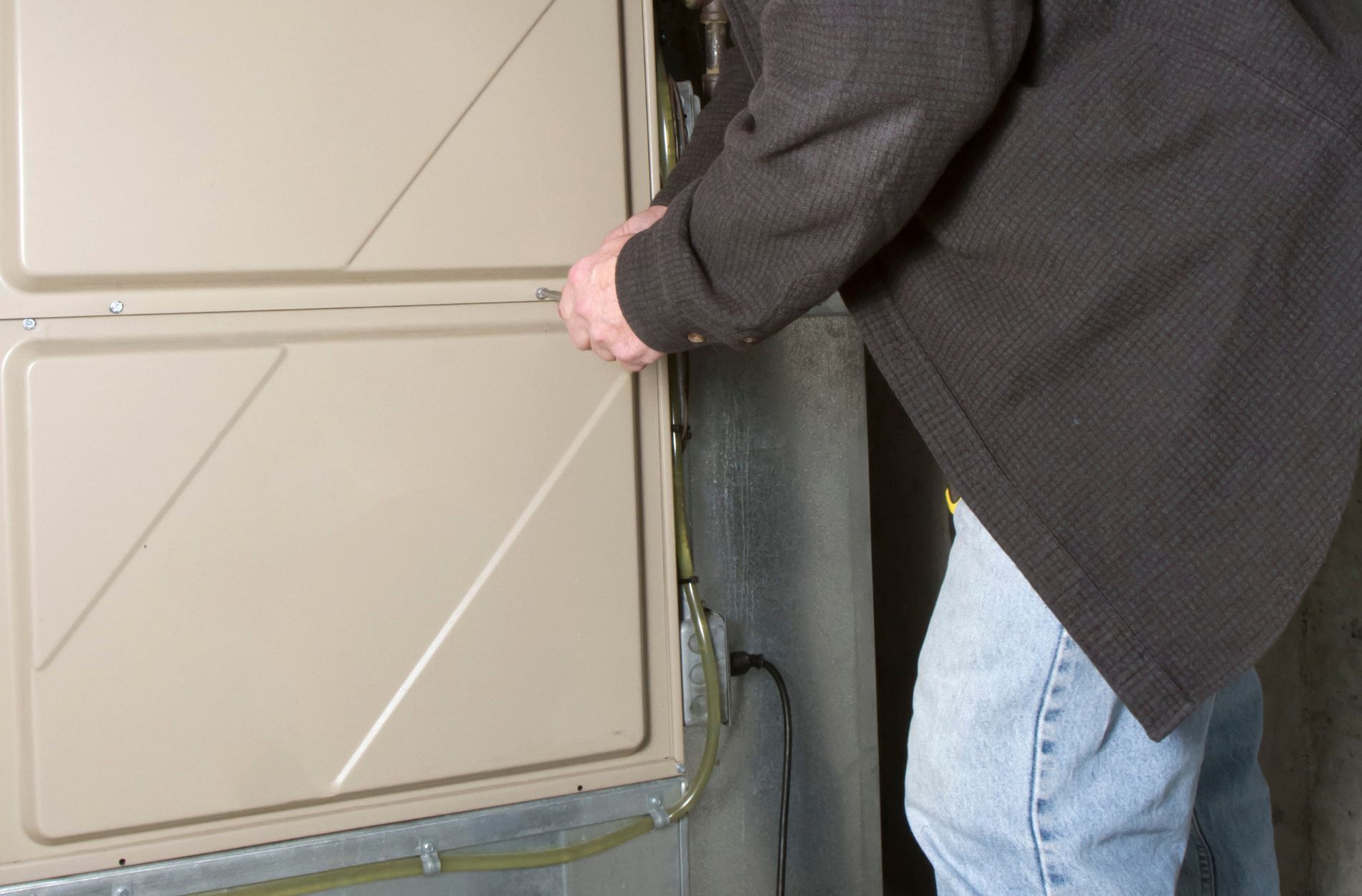Furnace installation is a critical process that significantly impacts the comfort and efficiency of your home’s heating system. Whether you’re installing a new furnace in a recently built home or replacing an outdated unit, making informed decisions can ensure optimal performance and safety.
Preparing for Furnace Installation
Assessing Your Home’s Heating Needs
Before installing a furnace, it is crucial to assess your home’s heating needs. This involves considering the size of your home, the number of rooms, and the local climate. Larger homes or homes in colder areas may require more powerful furnaces. Additionally, factors like insulation quality and window types play a role in determining the heating capacity needed. Conducting an accurate assessment helps ensure you choose a furnace that can efficiently and effectively heat your home. Consulting with our professionals can provide a more thorough evaluation tailored to your specific situation.
Selecting the Right Furnace Type
Choosing the right furnace type is a significant decision. Furnaces come in various types, including gas, electric, oil, and propane. Each type has its advantages and drawbacks. Gas furnaces are typically more efficient but require a natural gas supply. Electric furnaces are easier to install but can be more expensive to operate in the long run. Oil and propane furnaces can be efficient alternatives but need regular fuel deliveries. Evaluate the fuel availability, cost, and your personal preferences when selecting a furnace. Having our professionals guide you through the options ensures you make an informed choice that meets your heating needs.
Do’s of Furnace Installation
Hire Qualified Professionals
One of the most critical steps in furnace installation is hiring qualified professionals. Installing a furnace involves complex tasks such as electrical work, gas connections, and ventilation setup. Our technicians have the expertise and training to handle these tasks safely and efficiently. Attempting to install a furnace without professional help can lead to errors that compromise the system’s performance and safety. Ensure you hire certified and experienced technicians to handle the installation process.
Ensure Proper Ventilation
Proper ventilation is essential for the safe and efficient operation of a furnace. Adequate ventilation prevents the buildup of harmful gases like carbon monoxide, which can be hazardous to health. During installation, make sure that exhaust vents are correctly placed and unobstructed. Also, consider installing carbon monoxide detectors in your home for added safety. Our professionals ensure that ventilation requirements are met during the installation process, providing peace of mind and a safe environment.
Use Quality Materials
Using quality materials during the furnace installation can have a lasting impact on the system’s performance and longevity. From ductwork to insulation, all components should be of high quality to ensure efficient operation and durability. Cutting corners by using substandard materials may save money upfront but can lead to frequent repairs and earlier system failure. Make sure that all materials used in the installation meet industry standards. Rely on our technicians to source and use the best materials for a reliable and long-lasting furnace system.
Don’ts of Furnace Installation
Attempt DIY Installation
Avoid the temptation to install the furnace yourself. Furnace installation is a complex task that requires specialized knowledge and skills. DIY installation can lead to dangerous situations, including gas leaks and electrical hazards. Improper installation can also void the warranty and result in costly repairs. It is always safer and more effective to have our professionals handle the installation. They are trained and certified to ensure the job is done right.
Ignore Local Building Codes
Ignoring local building codes is another major mistake. Building codes exist to ensure safety and compliance. They cover various aspects, such as electrical connections, gas lines, and ventilation. Installing a furnace without adhering to these codes can lead to penalties, failed inspections, and safety risks. Always consult local codes before installation and make sure to follow them strictly. Our technicians are well-versed in local building codes and ensure that your installation complies with all regulations.
Overlook Ductwork Inspection
Neglecting to inspect the ductwork can compromise the efficiency of your new furnace. Old or clogged ducts can restrict airflow, making it harder for the furnace to heat your home effectively. Before installation, have the ductwork inspected for any issues. This ensures that the furnace operates efficiently and distributes heat evenly throughout your home. Our professionals can perform a thorough inspection and recommend any necessary repairs or upgrades to your duct system.
Post-Installation Tips
Schedule Regular Maintenance
Regular maintenance is crucial for keeping your furnace in top condition. Schedule annual check-ups to ensure all components are functioning correctly. Maintenance tasks include cleaning, inspecting parts, and checking for any potential issues. Regular servicing helps extend the life of your furnace and keeps it operating efficiently. Our professionals can set up a maintenance schedule that suits your needs.
Monitor System Performance
Keep an eye on the performance of your furnace. Listen for unusual noises, check for inconsistent heating, and monitor your energy bills for any unexpected increases. These signs can indicate underlying issues that need attention. By monitoring performance, you can catch problems early and avoid costly repairs. If you notice any issues, contact our technicians for a prompt inspection and necessary repairs.
Change Filters Frequently
Changing filters regularly is one of the simplest yet most effective ways to maintain your furnace. Dirty filters restrict airflow and force the furnace to work harder, which can lead to increased energy consumption and wear. Check filters monthly and replace them as needed, usually every 1-3 months. This simple task helps keep your system running smoothly and improves indoor air quality.
Conclusion
Furnace installation is a crucial aspect of maintaining a comfortable and efficient home. Proper preparation, including assessing your home’s heating needs and choosing the right furnace type, sets the stage for a successful installation. Following best practices like hiring qualified professionals, ensuring proper ventilation, and using quality materials further guarantees a reliable system. On the flip side, avoiding common pitfalls such as DIY installations, ignoring local building codes, and neglecting ductwork inspections can prevent costly errors.
Post-installation, regular maintenance, system monitoring, and frequent filter changes are essential to keep your furnace in optimal condition. These steps ensure your system operates efficiently, extends its lifespan, and provides consistent comfort.
For expert furnace installation in Indianapolis, IN, trust LCS Heating & Cooling. Contact us today to schedule your service and experience top-notch care and expertise.




